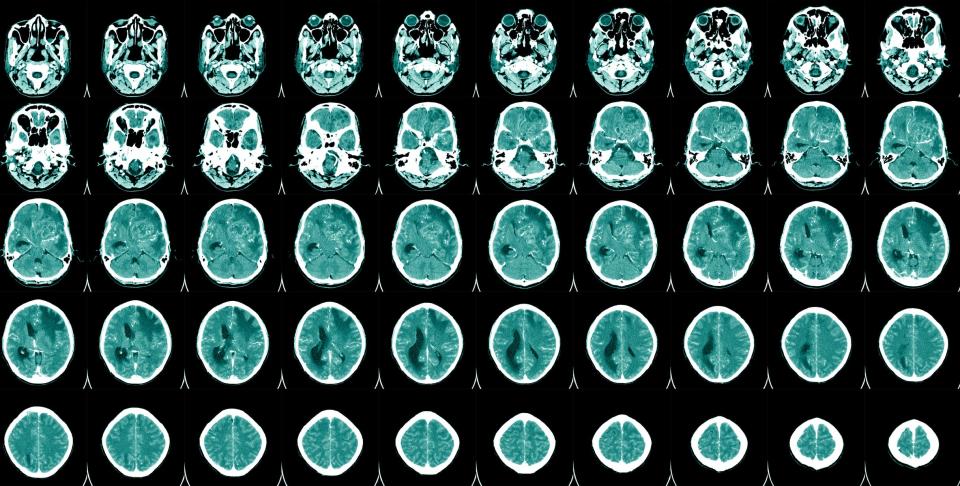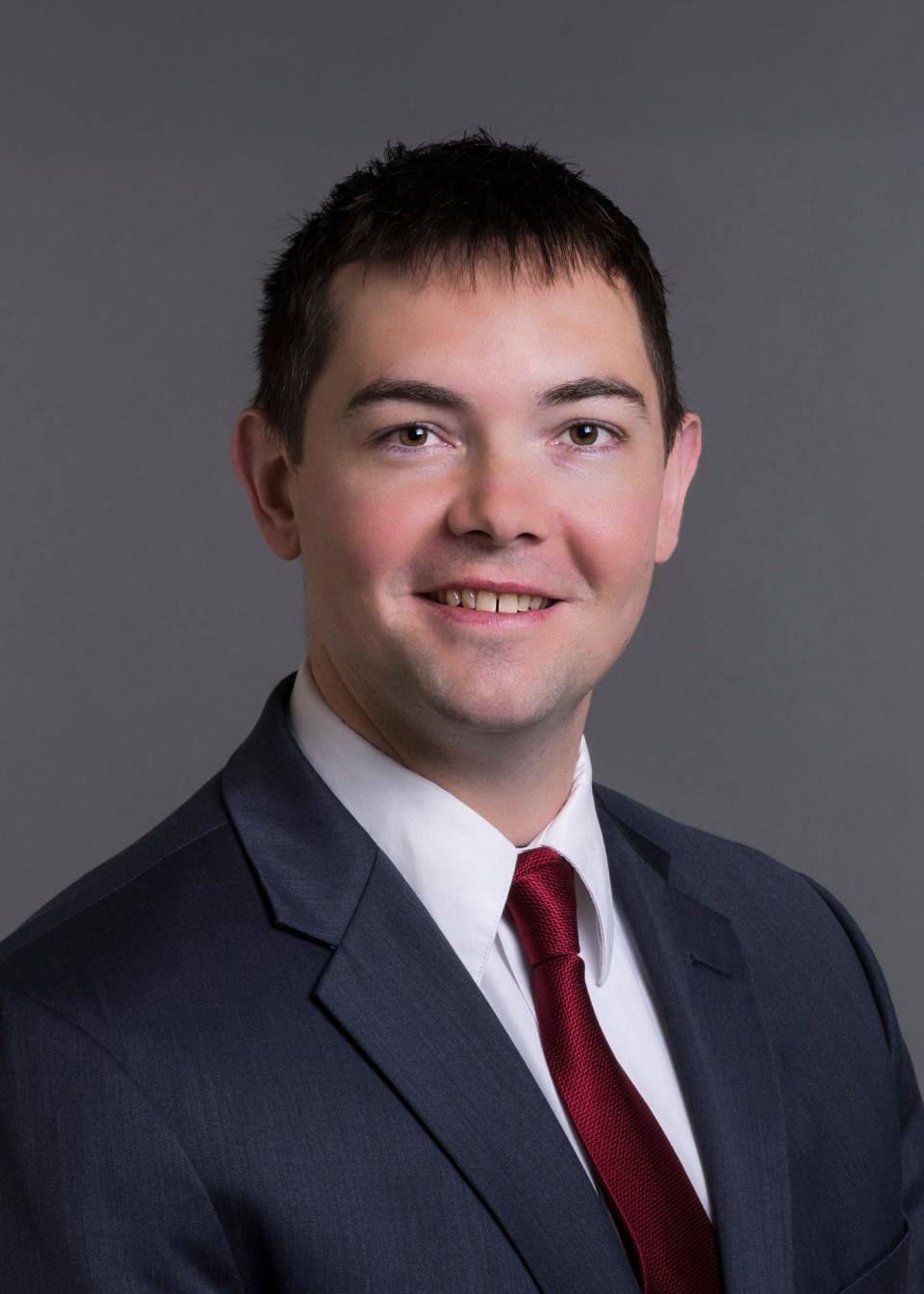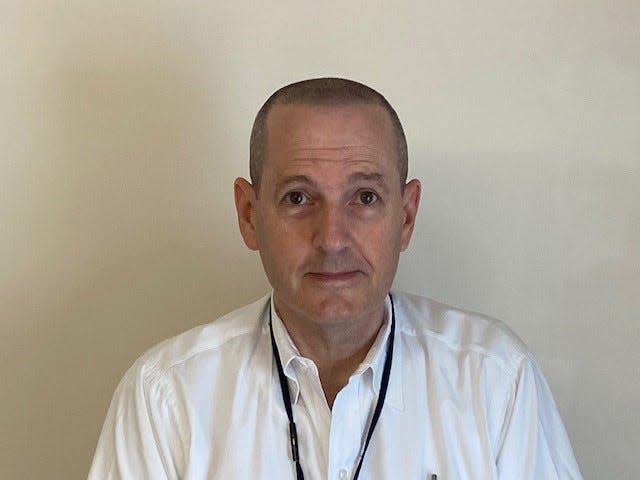What is aphasia? Actor Bruce Willis steps away from acting career after his diagnosis
- Oops!Something went wrong.Please try again later.
PORTSMOUTH -- The family of beloved actor Bruce Willis announced last week he will step back from his acting career, after being diagnosed with aphasia. So what is that?
Aphasia is a condition that results from any traumatic injury to the brain. There are varying severities to aphasia and it has not been released which type Willis has.

"Aphasia is a symptom rather than a diagnosis," said Dr. Matthew Robertson, a neurologist at Portsmouth Regional Hospital. "It is a difficulty with language processing that could mean trouble understanding what is said, or having trouble speaking your mind."

Robertson said there are many circuits in the brain that deal with language, both expressive and receptive circuits. The treatment of aphasia, Robertson said, depends on the type of aphasia a patient has. Some cases can be improved with therapy, while others continue to worsen.

"The most common cause of aphasia is as a result of stroke," he said. "That is the type that may improve with speech and occupational therapy."
Alzheimer's disease and other forms of dementia are often accompanied by aphasia.
One type of the condition, primary progressive aphasia is degenerative and Robertson said this type affects many cadences of speech.
More: 'I wanted to help': Dover student embraces Teen Mental Health First Aid Training
"People may not understand what is said to them," he said. "They might have difficulty following conversations, or finding their words. They don't always realize this themselves, so a red flag for me is when family members or friends are concerned about their speech, when they notice changes in that or their personality."
"There is no cure if the condition is degenerative, with the treatment being primarily palliative and training with coping mechanisms," said Dr. Peter Morin of Neurology Associates at York Hospital.

Morin said the injury that causes aphasia always disrupts language.
"It's not just articulation," he said. "It's a difficulty translating thoughts into words, and also translating words into thought."
The type of aphasia correlates to the area of the brain that is damaged.
Morin said Broca's aphasia comes from frontal lobe damage.
"People cannot translate their thoughts into words," he said. "To varying degrees, they have difficulty speaking and writing."
More: 2022 will see advances in how mental health services are offered in NH
Wernicke's aphasia comes from posterior damage.
"People can talk, but they have difficulty understanding words, written or spoken," said Morin. "They may say sentences they think are correct, but are actually non-sensical."
The worst type, Pick's disease, is a form of frontotemporal dementia. Morin said it is a dementia similar to Alzheimer's, but less common.
"It is devastating," said Morin. "It is not entirely locked in syndrome, but it affects parts of the brain that control emotions, behavior, personality and language. It is very frustrating for the person experiencing it."

Erin Fairhurst, a speech language pathologist at Exeter Hospital, said aphasia can impact speaking, writing, understanding language or reading.
"People we see might only be able to speak in short sentences," she said. "They have a hard time finding their words to take part in a conversation."
Fairhurst said their clients are usually referred to them by primary care doctors or by neurologists.
More: 'I was so uplifted': Notes of Gratitude uplifting for Wentworth-Douglass Hospital staff
"We begin by evaluating them to figure out the type of aphasia," she said. "Then our goal is to restore their language and communication skills as much as is possible."
Working with family members or caregivers is important.
"We can teach them steps to help their loved ones," said Fairhurst. "That might be showing them ways to simplify sentences. Reducing background noise can be a help, making concentration easier. There is a tendency among family and friends to finish someone's sentence. We ask the patient, do you want your family to help you, or do you want them to give you time to find the words on your own? This can go a long way to helping with the frustration that is part of this condition. Our goal is to help the clients engage in the life they want to continue to have."
"I encourage my patients to have hope," said Morin. "There are other ways to communicate. Music and art are other ways around this condition. I try to help them to not be discouraged."
This article originally appeared on Fosters Daily Democrat: Actor Bruce Willis steps away from career after aphasia diagnosis

